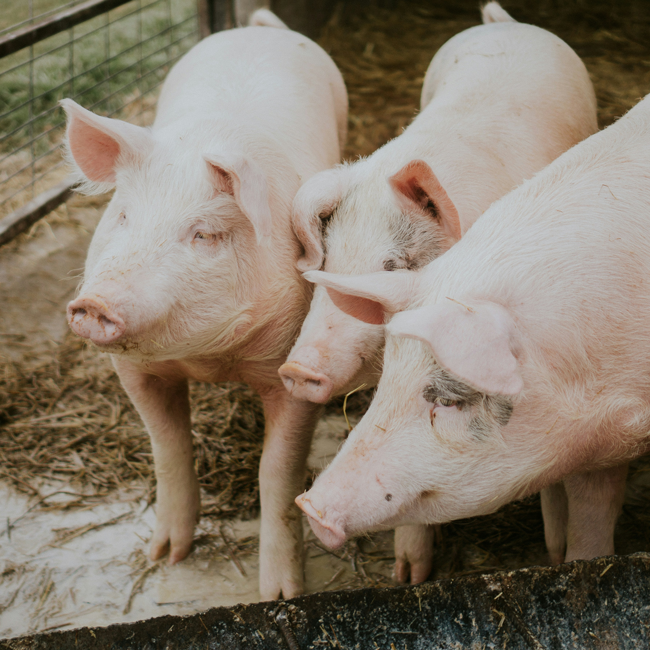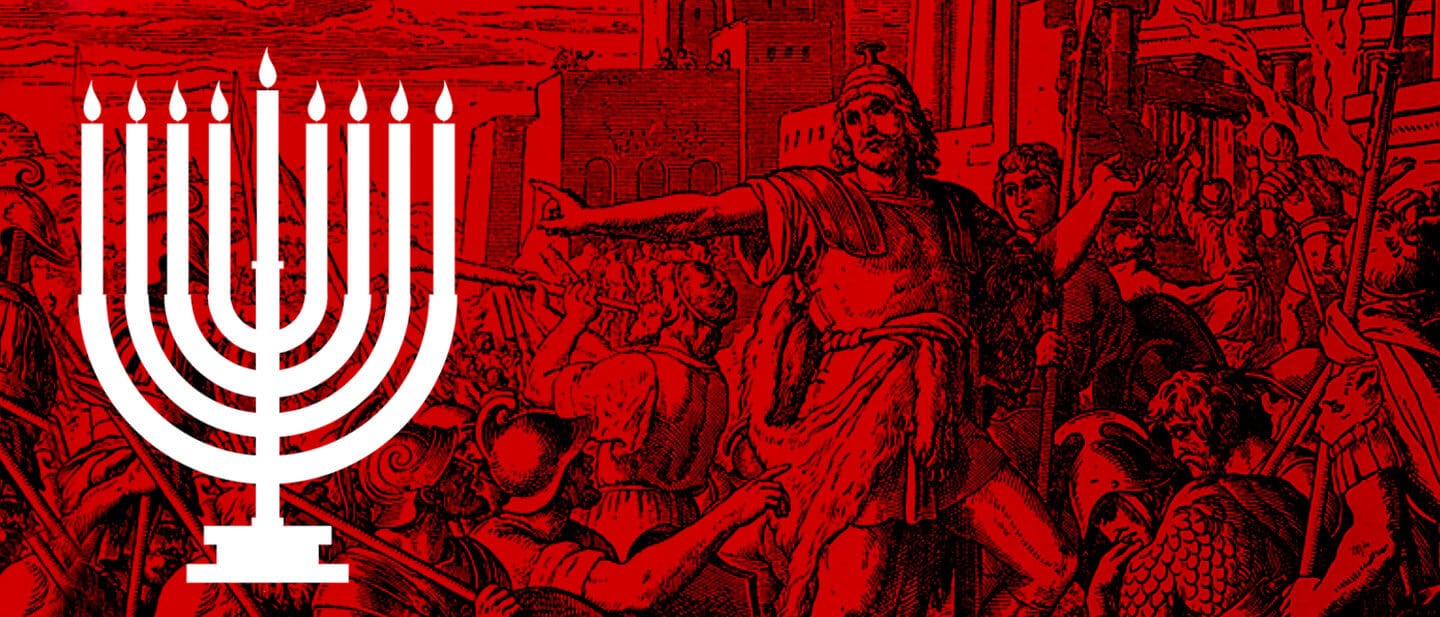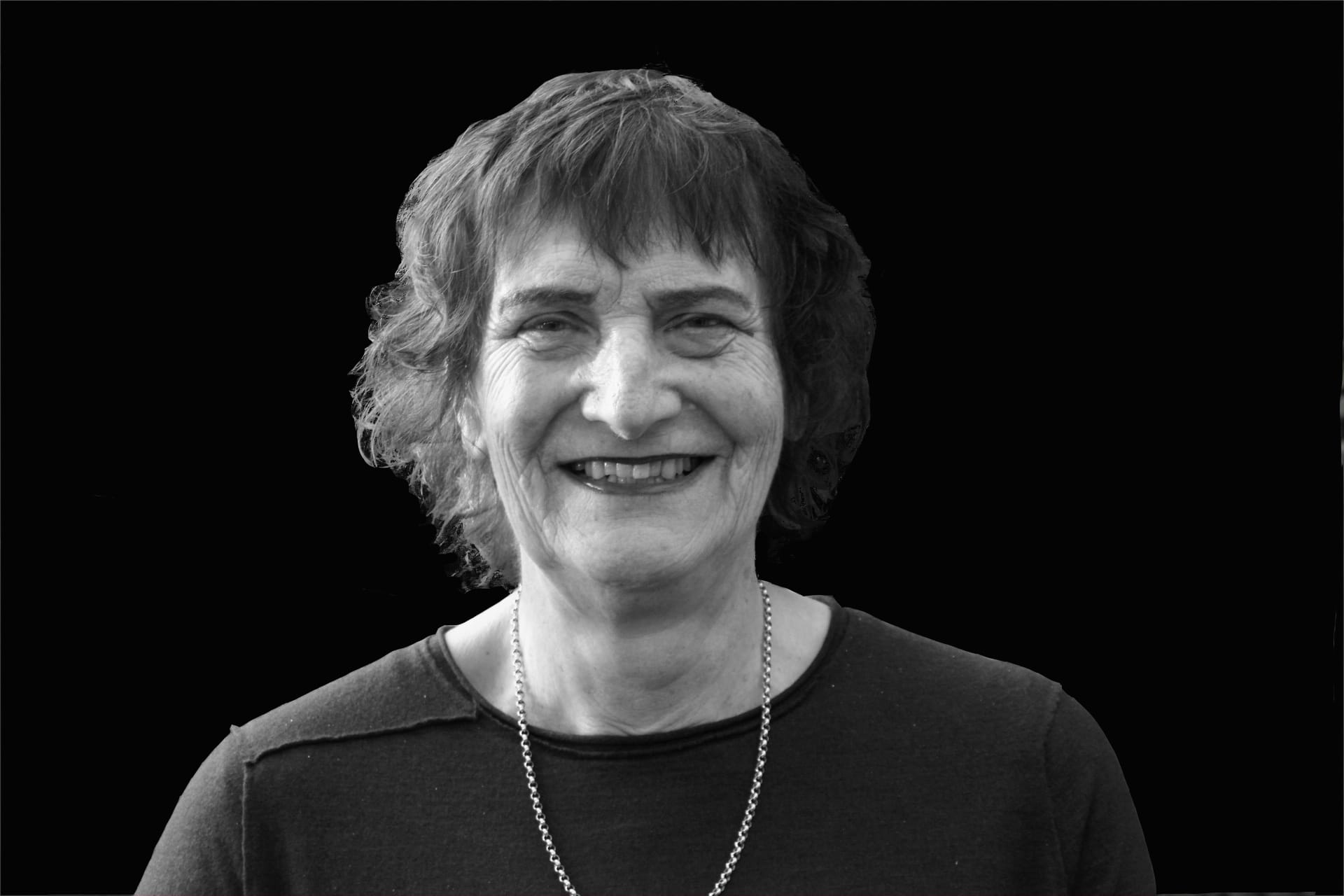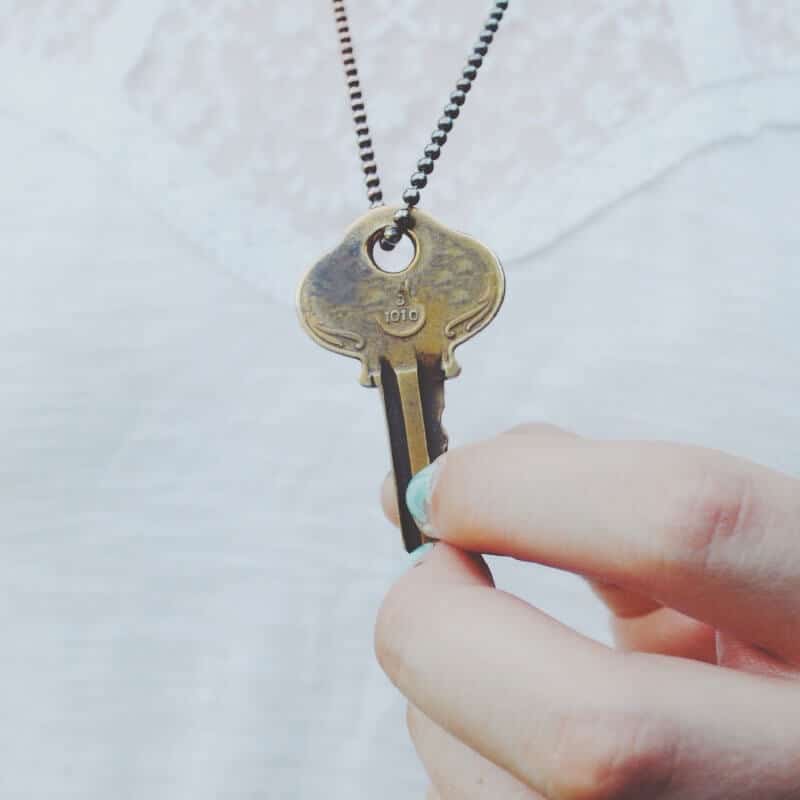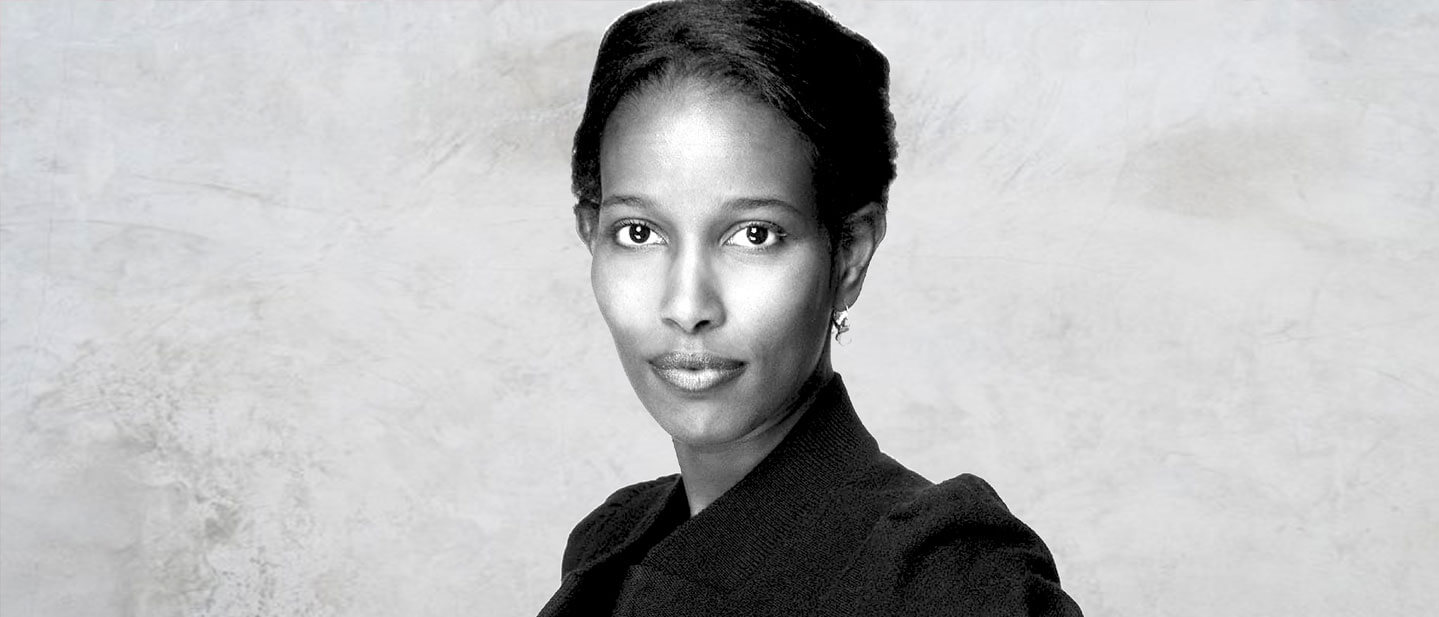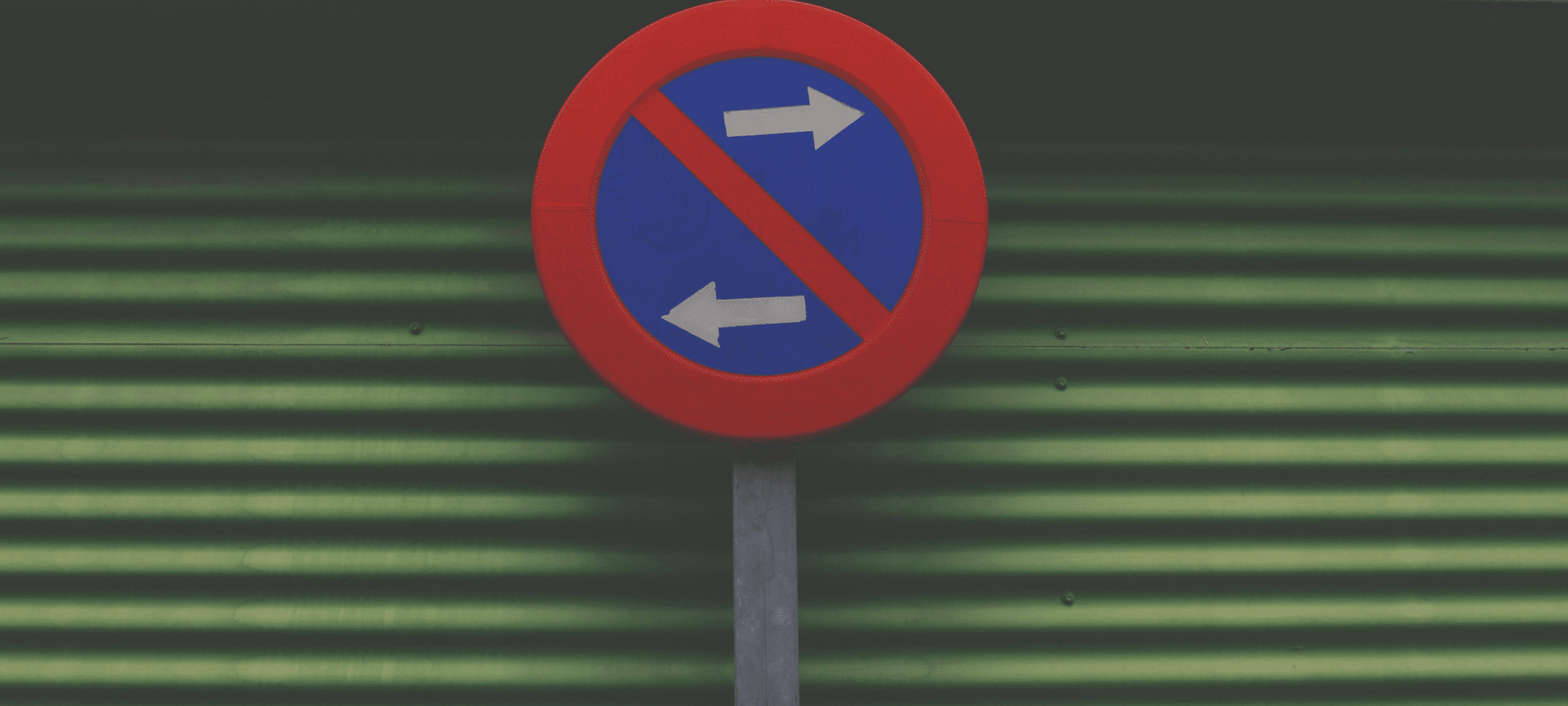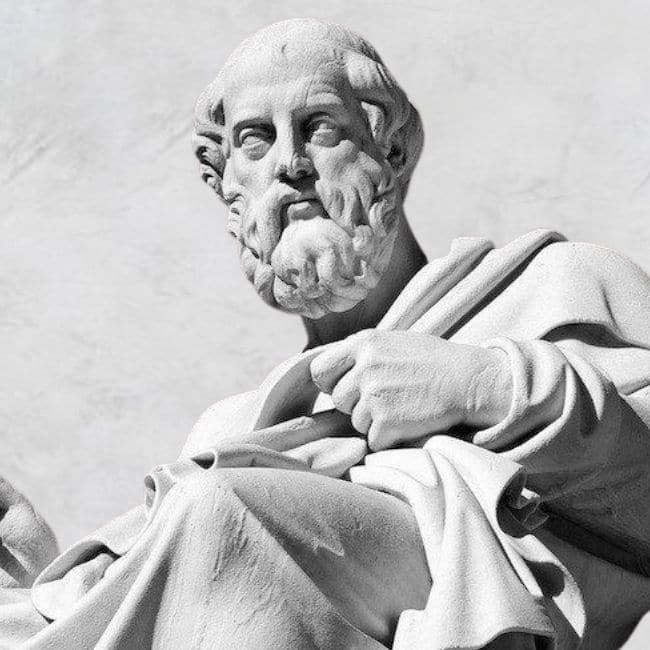Ethics Explainer: Social license to operate

Ethics Explainer: Social license to operate
ExplainerBusiness + Leadership
BY The Ethics Centre 23 JAN 2018
Social license – or social license to operate – is a term that has been in usage for almost 20 years. At its simplest, it refers to the acceptance granted to a company or organisation by the community.
Of course anyone running a company would be aware that there are many formal legal and regulatory licenses required to operate a legitimate business. Social license is another thing again: the informal “license” granted to a company by various stakeholders who may be affected by the company’s activities. Such a license is based on trust and confidence – hard to win, easy to lose.
It’s useful to understand that the term “social license to operate” first came into the world in reference to the mining and extractive industries. In an era of heightened awareness of environmental protection and sustainability, the legitimacy of mining was being questioned. It became apparent that the industry would need to work harder to obtain the ongoing broad acceptance of the community in order to remain in business.
To give a simple example: a mining company may be properly registered with all appropriate agencies; it may have a mining license, it may be listed with ASIC and be paying its taxes. It may meet every single obligation under the Fair Work Act. But if the mine is using up precious natural resources without taking due care of the environment or local residents, it will have failed to gain the trust and confidence of the community in which it operates.
Over time, the social license terminology has crossed into the mainstream and is now used to describe the corporate social responsibility of any business or organisation. A whole industry has flourished around Sustainability and Corporate Stakeholder Engagement. And there’s a growing view that social responsibility can be good for long-time financial performance and shareholder value.
The social license to operate is made up of three components: legitimacy, credibility, and trust.
- Legitimacy: this is the extent to which an individual or organisation plays by the ‘rules of the game’. That is, the norms of the community, be they legal, social, cultural, formal or informal in nature.
- Credibility: this is the individual or company’s capacity to provide true and clear information to the community and fulfil any commitments made.
- Trust: this is the willingness to be vulnerable to the actions of another. It is a very high quality of relationship and takes time and effort to create.
The rise of social license can be traced directly to the well-documented erosion of community trust in business and other large institutions. We’re living in an era in which business (or indeed Capitalism itself) is blamed for many of the world’s problems – whether they be climate change, income inequality, modern slavery or fake news. Many perceive globalisation to have had a negative impact on their quality of life.
There’s a growing expectation that businesses – and business leaders – should take a more active role in leading positive change. There’s a belief that business should be working to eliminate harm and maximise benefits – not just for shareholders or customers, but for everyone. To do this, business would be actively engaging with stakeholders, including the most outspoken or marginalised voices; they should be prepared to listen, and reflect, on the concerns of these often powerless individuals.
There is no simple list of requirements that have to be met in order to be granted a social licence to operate.
Too often, social licence is thought to be something that can be purchased, like an offset. Big companies with controversial practices often give out community grants and investments. Clubs that profit from addictive poker machines provide sports gear for local teams and inexpensive meals for pensioners. Tax minimisers set up foundations; soft drink companies fund medical research.
Here a social licence to operate might be seen as a kind of transaction where community acceptance can be bought. Of course, such an approach will often fail precisely because it is conceived as a calculated and cynical pay-off.
The effective co-existence of businesses and individuals within a community requires the development of rich and enduring relationships based on mutual respect and understanding. That sounds like something we’ll all need to work on.
Ethics in your inbox.
Get the latest inspiration, intelligence, events & more.
By signing up you agree to our privacy policy
You might be interested in…
Opinion + Analysis
Business + Leadership
It’s time to consider who loses when money comes cheap
Opinion + Analysis
Business + Leadership
Beyond the shadows: ethics and resilience in the post-pandemic environment
Opinion + Analysis
Business + Leadership
Why we can’t learn from our past (and shouldn’t try to)
Opinion + Analysis
Business + Leadership, Science + Technology
People first: How to make our digital services work for us rather than against us
BY The Ethics Centre
The Ethics Centre is a not-for-profit organisation developing innovative programs, services and experiences, designed to bring ethics to the centre of professional and personal life.
Ethics Explainer: Tolerance

For some people, the value of tolerance is simply the opposite of intolerance. But to think of tolerance in simple binary terms limits our understanding of important aspects of the concept.
We gain greater insight if we consider tolerance as the midpoint on a spectrum ranging between prohibition at one end to acceptance at the other:
Prohibition ————— Tolerance ————— Acceptance
The Ancient Greek philosopher Aristotle called this middle point of the spectrum, the golden mean. Approaching tolerance this way, makes it what philosophers call a virtue – the characteristic between two vices.
For example, Aristotle places the virtue of courage at the midpoint (or golden mean) between cowardice and recklessness. So, a courageous person has a proper appreciation of the danger to be faced but stands steadfast and resolute all the same.
Cowardice ————— Courage ————— Recklessness
Although Aristotle’s doctrine of the golden mean can help us understand tolerance, quite a bit more needs to be said. Some things deserve to be rejected and prohibited. And some things ought to be accepted.
We should neither accept or tolerate behaviour that denies the intrinsic dignity of people – for example, the defiling of synagogues by anti-Semites. Instead, we should have a general acceptance and respect for everyone’s intrinsic dignity. People should neither be rejected nor merely tolerated.
Unacceptance ≠ Prohibition
However, there are some things you might reasonably not accept, yet not want to prohibit. This is typically the case when you encounter an idea, custom or practice that is either unfamiliar or at odds with your own convictions about what makes for a good life.
For example, a vegetarian might be convinced it is wrong to eat animals. Such a person may never accept the practice as part of their own life. However, they may not want to stop others eating meat. Instead, they will tolerate other people’s consumption of animals.
This reveals an essential aspect of tolerance. Toleration is always a response to something that is disapproved of – but not to such a degree as to justify prohibition. Tolerance is, by definition, a mark of disapproval.
And so some people seek from society something more than ‘mere tolerance’. Instead, they look for acceptance.
Tolerance to acceptance
The word ‘acceptance’ rang out loud when it was revealed a majority of Australian voters answered yes to the same sex marriage postal survey in 2017. For gay and lesbian couples, the result is evidence of wide acceptance of their equality as citizens.
Individuals and communities are not only entitled to think about what should be accepted, tolerated or prohibited. We can also be obliged to consider these things.
Without wanting to confuse ethical with legal obligations, this is the difficult task of parliaments. To continue with the same sex marriage example in Australia, they were obliged to consider what behaviours should be accepted, tolerated, or prohibited in terms of wedding services and religious freedoms.
The ethics of tolerance
Ethics calls upon people to examine their lives – including the quality of their reasons when forming judgements. An ethical life is one that goes beyond unthinking custom and practice. This is why judgements about what is to be accepted, tolerated or prohibited need to be made free from the distorting effects of prejudice. Beliefs, customs and institutions should be evaluated for what they actually are – and not on the basis of assumptions about people or the world. The quality of our judgment matters.
There can be sincere disagreement among people of good will. Respect for persons – and the general acceptance this requires – can sit alongside ‘mere’ tolerance of each other’s foibles.
And that may be the best we should hope for.
Ethics in your inbox.
Get the latest inspiration, intelligence, events & more.
By signing up you agree to our privacy policy
You might be interested in…
Opinion + Analysis
Health + Wellbeing
HSC exams matter – but not for the reasons you think
Opinion + Analysis
Health + Wellbeing, Politics + Human Rights
‘Eye in the Sky’ and drone warfare
Opinion + Analysis
Relationships
Want men to stop hitting women? Stop talking about “real men”
Opinion + Analysis
Business + Leadership, Health + Wellbeing, Society + Culture
Ethical concerns in sport: How to solve the crisis
BY The Ethics Centre
The Ethics Centre is a not-for-profit organisation developing innovative programs, services and experiences, designed to bring ethics to the centre of professional and personal life.
Ethics Explainer: Conscience

Conscience describes two things – what a person believes is right and how a person decides what is right. More than just ‘gut instinct’, our conscience is a ‘moral muscle’.
By informing us of our values and principles, it becomes the standard we use to judge whether or not our actions are ethical.
We can call these two roles ethical awareness and ethical decision making.
Ethical Awareness
This is our ability to recognise ethical values and principles.
The medieval philosopher Thomas Aquinas believed our conscience emerged from synderesis: the ‘spark of conscience’. He literally meant the human mind’s ability to understand the world in moral terms. Conscience was the process by which a person brought the principles of synderesis into a practical situation through our decisions.
Ethical Decision Making
This is our ability to make practical decisions informed by ethical values and principles.
In his writings, Aristotle described phronesis: the goodness of practical reason. This was the ability to evaluate a situation clearly so we would know how to act virtuously under the circumstances.
A conscience which is both well formed (shaped by education and experience) and well informed (aware of facts, evidence and so on) enables us to know ourselves and our world and act accordingly.
Seeing conscience in this way is important because it teaches us ethics is not innate. By continuously working to understand our surroundings, we strengthen our moral muscle.
Conscientious Objection
In politics, much of the debate around conscience concerns the “right to conscientious objection”.
- Should pro-life doctors be required to perform abortions or refer patients to doctors who will?
- Must priests break the confessional seal and report sex offenders who confess to them?
- Can pacifists be excused from conscription because of their opposition to war?
For a long time, Western nations, informed by the Catholic intellectual tradition, believed in the “primacy of conscience” – the idea that a person should never be forced to do something they believe is against their most deeply held values and principles.
In recent times, particularly in medicine, this has come to be questioned. Australian bioethicist Julian Savulescu believes doctors working in the public system should be banned from objecting to procedures because it compromises patient care.
This debate sees a clash between two worldviews – one where people’s foremost responsibility is to their own personal beliefs about what is good and right and another where this duty is balanced against the needs of the common good.
Philosopher Michael Walzer believes there are situations where you have a duty to “get your hands dirty” – even if the price is your own sense of goodness. In response, Aristotle might have said, “no person wishes to possess the world if they must first become someone else”. That is, we can’t change who we are or what we believe in for any price.
Recommended viewing
Ethics in your inbox.
Get the latest inspiration, intelligence, events & more.
By signing up you agree to our privacy policy
You might be interested in…
Opinion + Analysis
Relationships
In defence of platonic romance
Opinion + Analysis
Relationships
Online grief and the digital dead
Explainer
Health + Wellbeing, Relationships
Ethics Explainer: Eudaimonia
Explainer
Relationships
Ethics Explainer: Progressivism
BY The Ethics Centre
The Ethics Centre is a not-for-profit organisation developing innovative programs, services and experiences, designed to bring ethics to the centre of professional and personal life.
Ethics Explainer: Progressivism

Progressivism is a political ideology based on the possibility of moral progress. In practice, this looks like an optimism about the future of humanity.
Progressives believe the course of human history is moving us closer to a state of peace, equality, and prosperity. They also tend to believe in human perfectibility. Politics, technology, and education can overcome human failings to create a utopia.
We can see this in the work of philosophers Steven Pinker and Michael Shermer. Pinker says since the Enlightenment, altruism has been on the rise and violence is declining around the world. Shermer suggests each generation has been smarter than the last, which he believes, has continually reduced impulsive violence.
Hegel’s synthesis
German philosopher Georg Wilhelm Friedrich Hegel believed moral progress was inescapable. He thought the forces of history shape humanity for the better, pushing it toward perfection.
Hegel believed history unrolled according to a “dialectical” pattern. This was where opposing sides clashed and compromised with one another. These opposing forces, which he called the “thesis” and “antithesis”, would clash before reaching a “synthesis”.
This synthesis would then spark a new antithesis and the process would continue. Hegel thought each stage in the thesis-antithesis-synthesis series moved us closer to a state of perfection. His work is said to have inspired other progressive thinkers, most notably communist philosopher Karl Marx.
The darker side of progress
Today, new forms of genetic editing promise a cure to a range of illnesses and maybe even death itself. Transhumanists believe we can overcome the limitations of our humanity and mortality. They suggest a range of options, from changing our biology to uploading our consciousness into a supercomputer.
But practical efforts to create this perfect world have not always been pleasant. At times it has been outright barbaric.
One example is the eugenics movement. It aimed to breed some people, like those with disabilities, out of society altogether, and cited social progress as their defence.
This is one reason why conservatives often urge caution around progress. They encourage us to be mindful of the potential unintended side effects of new policies or technology.
But progressives are often concerned this will inhibit life changing new developments. They suggest we deal with issues as they arise, rather than trying to predict them in advance.
Heaven on earth
Progressives often see education as the silver bullet solution for social problems. Like Ancient Greek philosopher Socrates, they tend to believe all vice is the result of ignorance, not malice. They suggest humans are fundamentally good and education will bring out the better angels of our nature.
But some are sceptical whether education alone will fix all humanity’s woes. They agree humans are mostly good but don’t blame ignorance for evil. Instead, they see war, conflict and violence as the product of oppression and inequality.
Karl Marx believed conflict between the wealthy and the working class was a central theme in human society. He believed the power imbalance between rich and poor was bad for everyone. He famously claimed people would be better throwing away hierarchies based on class and wealth. Only when we’re all equal, he thought, will we be able to perfect ourselves.
English philosopher Mary Wollstonecraft suggested the path to human perfection might require both politics and education. She argued that political change requires us to educate marginalised groups. Otherwise, any change will continue to exclude the groups already on the fringes of society.
This explains why more women and culturally diverse people have contributed to progressive thinking in recent decades. In the past, the leading progressive thinkers tended to be white men. Improved access to education has enabled a greater range of voices to contribute to the larger conversation of what a perfect world might look like and how we could create it.
Ethics in your inbox.
Get the latest inspiration, intelligence, events & more.
By signing up you agree to our privacy policy
You might be interested in…
Opinion + Analysis
Business + Leadership, Relationships
There are ethical ways to live with the thrill of gambling
Opinion + Analysis
Relationships, Society + Culture
Where are the victims? The ethics of true crime
Opinion + Analysis
Relationships
Ask an ethicist: How should I divvy up my estate in my will?
Opinion + Analysis
Politics + Human Rights, Relationships
Assisted dying: 5 things to think about
BY The Ethics Centre
The Ethics Centre is a not-for-profit organisation developing innovative programs, services and experiences, designed to bring ethics to the centre of professional and personal life.
Ethics Explainer: Respect

The concept of respect arises in two major forms. We’ll call them respect (lite) and respect (full).
Respect (lite)
Respect (lite) is in play when being polite, considerate and mindful of another person. It can also be demanded from another as a mark of deference to their rank, seniority, experience or standing in the world. We see it in statements like: “respect your elders”, “show a little respect”, or “with all due respect”.
It tends to be allied to the claim that respect is best earned rather than demanded. However, the idea that respect (lite) needs to be earned is one of the most important ways of distinguishing the ‘lite’ concept from the ‘full’ form.
Respect (full)
Respect for persons may perhaps be the most fundamental principle in all of ethics. Respect (full) calls on each and every one of us to respect the intrinsic dignity of all other people. If something is intrinsic to us, it is essential to our being and cannot be earned. It is a property of being a person.
The source of intrinsic dignity has varied over time and across cultures. For example, within Judaism, Christianity and Islam (at least), the intrinsic dignity of persons comes from being made in the image of God. In each of these traditions, the image isn’t literal. Rather, the reference is to being made in the ‘moral image’ of God – and most importantly, being endowed with free will.
There are also secular sources of personhood. Perhaps most famous is Immanuel Kant’s linking of personhood and intrinsic dignity to our rationality. This quality of ours means we all belong to what Kant calls the ‘Kingdom of Ends’.
‘The Kingdom of Ends’ is a thought experiment Kant created in which all human beings are treated as ends (where they and their wellbeing are the goal), and not as a “means to an end” (where the benefit of others is the goal). You’ve probably heard someone say, “My job is a means to an end”, meaning they don’t care much for their work but do care about the rent, family or travel their work pays for.
Having made a distinction between means and ends, Kant goes on to say a person should never be used as a means. Unsurprisingly he had a prohibition against slavery, the ancient institution where people become the property of someone else who uses them as a tool for their own benefit.
Respect (full) is what we count on as the source of principled opposition to all forms of discrimination against persons – whether it be because of age, gender, sexuality, race, religion… whatever.
Joining the two ideas together
These two versions of respect are clearly related. It is just that we tend to lose sight of the connection. Polite, respectful debate about contentious issues is not just about avoiding harmful consequences. It can (and should) go deeper – right back to recognition of the intrinsic dignity of others.
That is ultimately the reason why we should listen to their opinion. It is why we should attack the arguments and not the person. It is why we should refrain from insulting, bullying, silencing or oppressing others even if we fundamentally disagree with them.
Of course, civilised and principled disagreement can help avoid matters getting out of hand when tempers fray. But safer, better forms of deliberation are collateral benefit of acting on the principle of respect for persons – and acknowledging their intrinsic dignity – even when we are opposing them.
Ethics in your inbox.
Get the latest inspiration, intelligence, events & more.
By signing up you agree to our privacy policy
You might be interested in…
Opinion + Analysis
Relationships, Climate + Environment
Blindness and seeing
Opinion + Analysis
Relationships
The historical struggle at the heart of Hanukkah
Opinion + Analysis
Health + Wellbeing, Relationships
Ageing well is the elephant in the room when it comes to aged care
Opinion + Analysis
Relationships, Society + Culture
Meet Daniel, helping us take ethics to the next generation
BY The Ethics Centre
The Ethics Centre is a not-for-profit organisation developing innovative programs, services and experiences, designed to bring ethics to the centre of professional and personal life.
Ethics Explainer: Conservatism

Contrary to what many assume, the conservative political tradition is neither reactionary nor opposed to change. True conservatives are simply wary of revolutionary change – especially when inspired by utopian idealism.
Conservatives prefer an evolutionary approach, where experience, common sense, and pragmatism lend a certain stability to society and its institutions.
We could sum up the conservative political outlook in a couple of maxims:
-
“If it ain’t broke, don’t fix it”
-
“Don’t throw the baby out with the bathwater”
It is important to distinguish between conservatism as an ideological outlook and the conservative brand some political parties operate under. Some practice the type of cautious conservatism described above, whereas others are more radical in their outlook.
Conservatism is often associated with liberalism, unregulated capitalism, and in some cases, libertarianism. This is no accident. It’s the product of a mixed history of ideas and the occasional opportunism of certain individuals and political parties who have misappropriated the term for their own political ends.
Vive la révolution!
The most famous and early exponent of conservatism is the Irish-British philosopher, Edmund Burke. In most respects, the long-standing member of the British House of Commons was a classic liberal, respecting the ideals of liberty and equality.
But Burke found the French Revolution a step too far. A quick history lesson: the French Revolution was a 10-year uprising that began in 1789 against the aristocratic social and political systems. It eventually overthrew the monarchy.
In the revolution’s push for radical change, Burke saw the seeds of what we might now call totalitarianism – a society where the individual counts for nothing and the State for all. Burke captures this in his Second Letter on Regicide Peace where, describing the Revolutionary Government of France, he wrote:
“Individuality is left out of their scheme of government. The State is all in all. Everything is referred to the production of force; afterwards, everything is trusted to the use of it. It is military in its principle, in its maxims, in its spirit, and in all its movements. The State has dominion and conquest for its sole objects—dominion over minds by proselytism, over bodies by arms.”
This aversion to radical idealism and its tendency to lay the foundation for a totalitarian state is a theme frequently returned to by conservative philosophers. For example, Karl Popper observes in The Open Society and Its Enemies (Volume One):
“The Utopian attempt to realize an ideal state, using a blueprint of society as a whole, is one which demands a strong centralized rule of a few, and which is therefore likely to lead to a dictatorship.”
Like the pigs in George Orwell’s Animal Farm, after all the unrest and upheaval of the French Revolution, overthrowing the monarchy led to Napoleon’s rule, which is widely regarded as a totalitarian dictatorship. The conservative critique of efforts toward revolutionary change provide such examples as an argument for cautious and prudent evolution instead.
Conservatives are likely to feel that proponents of radical change often fail to realise that they will also be swept aside if something entirely new is to be made. As the contemporary philosopher in the ‘Burkean’ mould, Roger Scruton puts it:
“All that conservatism ultimately means, in my view, is the disposition to hold on to what you know and love. And if you don’t hold on to what you know and love, you will lose it anyway.”
Ethics in your inbox.
Get the latest inspiration, intelligence, events & more.
By signing up you agree to our privacy policy
You might be interested in…
Opinion + Analysis
Relationships
Five steps to help you through a difficult decision
Explainer
Relationships
Ethics Explainer: Epistemology
Opinion + Analysis
Relationships, Society + Culture
Big Thinker: Kwame Anthony Appiah
Opinion + Analysis
Relationships
Is masculinity fragile? On the whole, no. But things do change.
BY The Ethics Centre
The Ethics Centre is a not-for-profit organisation developing innovative programs, services and experiences, designed to bring ethics to the centre of professional and personal life.
Ethics Explainer: The Panopticon
The panopticon is a disciplinary concept brought to life in the form of a central observation tower placed within a circle of prison cells.
From the tower, a guard can see every cell and inmate but the inmates can’t see into the tower. Prisoners will never know whether or not they are being watched.
This was introduced by English philosopher Jeremy Bentham. It was a manifestation of his belief that power should be visible and unverifiable. Through this seemingly constant surveillance, Bentham believed all groups of society could be altered. Morals would be reformed, health preserved, industry invigorated, and so on – they were all subject to observation.
Think of the last time you were at work and your boss walked in the room. Did you straighten up and work harder in their presence? Now imagine they were always in the room. They wouldn’t be watching you all the time, but you’d know they were there. This is the power of constant surveillance – and the power of the panopticon.
Foucault on the panopticon
French philosopher, Michel Foucault, was an outspoken critic of the panopticon. He argued the panopticon’s ultimate goal is to induce in the inmates a state of conscious visibility. This assures the automatic functioning of power. To him, this form of incarceration is a “cruel, ingenious cage”.
Foucault also compares this disciplinary observation to a medieval village under quarantine. In order to stamp out the plague, officials must strictly separate everyone and patrol the streets to ensure villagers don’t leave their homes and become sick. If villagers are caught outside, the punishment is death.
In Foucault’s village, constant surveillance – or the idea of constant surveillance – creates regulation in even the smallest details of everyday life. Foucault calls this a “discipline blockade”. Similar to a dungeon where each inmate is sequestered, administered discipline can be absolute in matters of life or death.
On the other hand, Bentham highlights the panopticon’s power as being a “new mode of obtaining mind over mind”. By discarding this isolation within a blockade, the discipline becomes a self-propagating mental mechanism through visibility.
The panopticon today: data
Today, we are more likely to identify the panopticon effect in new technologies than in prison towers. Philosopher and psychologist Shoshanna Zuboff highlights what she calls “surveillance capitalism”. While Foucault argued the “ingenious” panoptic method of surveillance can be used for disciplinary methods, Zuboff suggests it can also be used for marketing.
Concerns over this sort of monitoring date back to the beginning of the rise of personal computers in the late 80s. Zuboff outlined the PC’s role as an “information panopticon” which can monitor the amount of work being completed by an individual.
Today this seems more applicable. Employers can get programs to covertly track keystrokes of staff working from home to make sure they really are putting in their hours. Parents can get software to monitor their children’s mobile phone use. Governments around the world are passing laws so they can collect internet data on people suspected of planning terror attacks. Even public transport cards can be used to monitor physical movements of citizens.
This sort of monitoring and data collection is particularly analogous with the panopticon because it’s a one-way information avenue. When you’re sitting in front of your computer, browsing the web, scrolling down your newsfeed and watching videos, information is being compiled and sent off to your ISP.
In this scenario, the computer is Bentham’s panopticon tower, and you are the subject from which information is being extracted. On the other end of the line, nothing is being communicated, no information divulged. Your online behaviour and actions can always be seen but you never see the observer.
The European Union has responded to this with a new regulation, known as “the right to an explanation”. It states users are entitled to ask for an explanation about how algorithms make decisions. This way, they can challenge the decision made or make an informed choice to opt out.
In these new ways, Bentham’s panopticon continues to operate and influence our society. Lack of transparency and one-way communication is often disconcerting, especially when thought about through a lens of control.
Then again, you might also argue to ensure a society functions, it’s useful to monitor and influence people to do what is deemed good and right.
Ethics in your inbox.
Get the latest inspiration, intelligence, events & more.
By signing up you agree to our privacy policy
You might be interested in…
Opinion + Analysis
Health + Wellbeing, Politics + Human Rights
Don’t throw the birth plan out with the birth water!
Opinion + Analysis
Politics + Human Rights
A note on Anti-Semitism
Opinion + Analysis
Politics + Human Rights
Lies corrupt democracy
Opinion + Analysis
Business + Leadership, Politics + Human Rights
Democracy is still the least-worst option we have
BY The Ethics Centre
The Ethics Centre is a not-for-profit organisation developing innovative programs, services and experiences, designed to bring ethics to the centre of professional and personal life.
Ethics Explainer: Ownership

Ethics Explainer: Ownership
ExplainerBusiness + LeadershipClimate + Environment
BY The Ethics Centre 5 JUL 2017
Where lying is the abuse of truth and harm the abuse of dignity, philosophers associate theft with the abuse of ownership.
We tend to take property for granted. People own things, share things or have access to things that don’t belong to them. We rarely stop to think how we come to own things, whether there are some things we shouldn’t be allowed to own or whether our ideas of property and ownership are adequate for everybody.
This is where English philosopher John Locke comes in.
Locke believed that in a state of nature – before a government, human made laws or an established economic system – natural resources were shared by everyone. Similar to a shared cattle-grazing ground called the Commons, these were not privately owned and so accessible to all.
But this didn’t last forever. He believed common property naturally transformed into private property through ownership. Locke had some ideas as to how this should be done, and came up with three conditions:
- First, limit what you take from the Commons so everyone else can enjoy the shared resource.
- Second, take only what you can use.
- Third, that you can only own something if you’ve worked and exerted labour on it. (This is his labour theory of property).
Though his ideas form the bedrock of modern private property ownership, they come with their fair share of critics.
Ancient Greek philosopher Plato thought collective property was a more appropriate way to unite people behind shared goals. He thought it was better for everyone to celebrate or grieve together than have some people happy and others sad at the way events differently affect their privately-owned resources.
Others wonder if it is complex enough for the modern world, where the resource gap between rich companies and poor communities widens. Does this satisfy Locke’s criteria of leaving the Commons “enough and as good”? He might have a criticism of his own about our current property laws – that they’ve gone beyond what our natural rights allow.
Some critics also say his theory denies the cultivation techniques and land ownership of groups like the Native Americans or the Aboriginal Australians. While Locke’s work serves as a useful explanation of Western conceptions of property ownership, we should wonder if it is as natural as he thought it was.
On the other hand, it’s likely Locke simply had no idea of the way in which Indigenous people have managed the landscape over millennia. Had he understood this, then he may have recognised the way Indigenous groups use and relate to land as an example of property ownership.
Karl Marx, and the closely associated philosophies of socialism and communism, prioritise common or collective property over private forms of property. He thought humanity should – and does – move toward co-operative work and shared ownership of resources.
However, Marx’s work on alienation may be a common ground. This is when people’s work becomes meaningless because they can’t afford to buy the things they’re working to make. They can never see or enjoy the fruits of their labour – nor can they own them. Considering the importance Locke places on labour and ownership, he may have had a couple of things to say about that.
Ethics in your inbox.
Get the latest inspiration, intelligence, events & more.
By signing up you agree to our privacy policy
You might be interested in…
Opinion + Analysis
Business + Leadership, Society + Culture
There’s something Australia can do to add $45b to the economy. It involves ethics.
Opinion + Analysis
Business + Leadership
United Airlines shows it’s time to reframe the conversation about ethics
Opinion + Analysis
Business + Leadership
Self-interest versus public good: The untold damage the PwC scandal has done to the professions
Big thinker
Climate + Environment
7 thinkers improving our ethical understanding of the environment
BY The Ethics Centre
The Ethics Centre is a not-for-profit organisation developing innovative programs, services and experiences, designed to bring ethics to the centre of professional and personal life.
Ethics Explainer: Rights and Responsibilities

Ethics Explainer: Rights and Responsibilities
ExplainerPolitics + Human Rights
BY The Ethics Centre 2 JUN 2017
When you have a right either to do or not do something, it means you are entitled to do it or not.
Rights are always about relationships. If you were the only person in existence, rights wouldn’t be relevant at all. This is why rights always correspond to responsibilities. My rights will limit the ways you can and can’t behave towards me.
Legal philosopher Wesley Hohfeld distinguished between two sets of rights and responsibilities. First, there are claims and duties. Your right to life is attached to everyone else’s duty not to kill you. You can’t have one without the other.
Second, there are liberties and no-claims. If I’m at liberty to raise my children as I see fit it’s because there’s no duty stopping me – nobody can make a claim to influence my actions here. If we have no claim over other people’s liberties, our only duty is not to interfere with their behaviour.
But your liberty disappears as soon as someone has a claim against you. For example, you’re at liberty to move freely until someone else has a claim to private property. Then you have a duty not to trespass on their land.
It’s useful to add into the mix the distinction between positive and negative rights. If you have a positive right, it creates a duty for someone to give you something – like an education. If you have a negative right, it means others have a duty not to treat you in some way – like assaulting you.
All this might seem like tedious academic stuff but it has real world consequences. If there’s a positive right to free speech, people need to be given opportunities to speak out. For example, they might need access to a radio program so they can be heard.
By contrast, if it’s a negative claim right, nobody can censor anyone else’s speech. And if free speech is a liberty, your right to use it is subject to the claims of other. So if other people claim the right not to be offended, for example, you may not be able to speak up.
There are a few reasons why rights are a useful concept in ethics.
First, they are easy to enforce through legal systems. Once we know what rights and duties people have, we can enshrine them in law.
Second, rights and duties protect what we see as most important when we can’t trust everyone will act well all the time. In our imperfect world, rights provide a strong language to influence people’s behaviour.
Finally, rights capture the central ethical concepts of dignity and respect for persons. As the philosopher Joel Feinberg writes:
Having rights enables us to “stand up like men,” to look others in the eye, and to feel in some fundamental way the equal of anyone. To think of oneself as the holder of rights is not to be unduly but properly proud, to have that minimal self-respect that is necessary to be worthy of the love and esteem of others.
Indeed, respect for persons […] may simply be respect for their rights, so that there cannot be the one without the other; and what is called “human dignity” may simply by the recognizable capacity to assert claims.
Feinberg suggests rights are a manifestation of who we are as human beings. They reflect our dignity, autonomy and our equal ethical value. There are other ways to give voice to these things, but in highly individualistic cultures, what philosophers call “rights talk” resonates for two reasons: individual freedom and equality.
Ethics in your inbox.
Get the latest inspiration, intelligence, events & more.
By signing up you agree to our privacy policy
You might be interested in…
Big thinker
Politics + Human Rights
Big Thinker: Judith Jarvis Thomson
Big thinker
Politics + Human Rights
Big Thinker: Ayaan Hirsi Ali
Opinion + Analysis
Business + Leadership, Politics + Human Rights
Can philosophy help us when it comes to defining tax fairness?
Explainer
Politics + Human Rights
Ethics Explainer: Social Contract
BY The Ethics Centre
The Ethics Centre is a not-for-profit organisation developing innovative programs, services and experiences, designed to bring ethics to the centre of professional and personal life.
Ethics Explainer: Vulnerability

In philosophy, vulnerability describes the ways in which people are less self-sufficient than they think.
It explains how factors beyond our control – like other people, events, and circumstances – can impact our ability to live our best lives. The implications of vulnerability for ethics are considerable and wide reaching.
Vulnerability isn’t a new idea. The ancient Greeks recognised tuche – luck – as a goddess with considerable power. Their plays often show how a person’s circumstances alter on the whim of the gods or a random twist of luck (or, if you like, a twist of fate).
This might seem obvious to many people. Of course, external events can affect our lives. If an air conditioning unit falls out of an apartment and lands on my head tomorrow, it’s going to change my circumstances pretty dramatically. But this isn’t the kind of luck philosophers argue is relevant to ethics.
A question of character
The Stoics, a group of ancient Greek philosophers (who are experiencing a revival today) thought only our own choices could affect our character or wellbeing. If I lose my job, my happiness is only affected if I choose to react to my new circumstances badly. The Stoics thought we could control our reactions and overcome our emotions.
The Stoics, much like Buddhist philosophy, thought our main problem was one of attachment. The more attached to external things – jobs, wealth, even loved ones – the more we risk suffering if we lose those things. Instead, they recommended we only be concerned with what we can control – our own personal virtue. For Stoics, we aren’t vulnerable because the only thing that matters can’t be taken away from us: our virtue.
Enlightenment philosopher Immanuel Kant had similar thoughts. He believed the only thing that mattered for ethics was that we act with good will. Whatever happened to us or around us, so long as we act with the intention of fulfilling our duties, we’d be in the clear, ethically speaking. It’s our rational nature – our ability to think – that defines us ethically. And thinking is completely within our control.
Both Kant and the Stoics believed the ethical life was invulnerable. External circumstances, like luck or other people, couldn’t affect our ability to make good or bad choices. As a result, whether or not we are ethical is up to us.
Can one ever be self-sufficient?
This idea of self-sufficiency has faced challenges more recently. Many philosophers simply don’t think it’s possible to be self-sufficient to the degree that the Stoics and Kant believed. But some go further – seeing a measure of virtue in vulnerability. For example, vulnerability has become a popular term among psychologists and self-help gurus like Brené Brown. They argue vulnerability, dependency, and luck make up important parts of who we are.
Several thinkers, such as Bernard Williams, Thomas Nagel, and Martha Nussbaum have criticised the idea of self-sufficiency. Scottish philosopher Alasdair MacIntyre, for example, argues that dependency is in our nature.
We’re all born completely dependent on other people and will reach a similar level of dependency if we live long enough. In the meantime, we’ll be somewhat independent but will still rely on other people for help, for community, and to give meaning to our lives.
MacIntyre thinks this is true even if Kant is right and rational adults are invulnerable to luck (at least in terms of choosing to do their duty). However, against Kant, MacIntyre argues that our capacity for rationality is honed by education and the quality of our education is often beyond our control… as we are dependent on the judgement and circumstances of our parents, society, and so on. Thus, we remain vulnerable in important ways.
Mutual vulnerability
Dr Simon Longstaff, the CEO of The Ethics Centre, has made a different argument in favour of vulnerability. He argues, after Thomas Hobbes, that the reality of mutual vulnerability lies at the heart of how and why we form social bonds. As a result, he argues those who seek to eliminate all forms of vulnerability risk creating a world in which the ‘invulnerable’ show no restraint in their treatment of the vulnerable.
All of this might seem like another academic debate but our understanding of vulnerability has significant consequences for the way we judge ourselves and others. If vulnerability matters, we’re less likely to judge people based on their circumstances. We won’t expect the poor always to lift themselves out of poverty (because unlucky circumstances may deny them the means to do so) nor assume every person struggling with an addiction is necessarily morally deficient. They may simply be stuck with the outcome of events that were (at least initially) beyond their control.
We may also be a little less self-congratulatory. Recognising the ways bad luck can affect people means also seeing how we’ve benefitted from good luck. Rather than assuming all our fortune is the product of hard work and personal virtue, we might be moved by vulnerability to acknowledge how factors beyond our control have worked in our favour.
Finally, vulnerability is one of the concepts that underpins modern debates about privilege and identity politics. If we think people are self-sufficient, we’re less likely to think past injustices have any effect on their present lives. However, if we think factors beyond our control can affect not just our lives but also our character and wellbeing, we might see the claims of minorities in a more open light.
There is a final sense in which vulnerability might be important to ethics. The ‘invulnerable’ person may come to believe their judgement is perfectly formed. They might become ‘immune to doubt’. If people open themselves to the possibility they might be wrong, they live an ‘examined life’ – that is, an ethical life.
Ethics in your inbox.
Get the latest inspiration, intelligence, events & more.
By signing up you agree to our privacy policy
You might be interested in…
Big thinker
Relationships
Big Thinker: Plato
Big thinker
Relationships
Big Thinker: Immanuel Kant
Opinion + Analysis
Politics + Human Rights, Relationships
Why victims remain silent and then find their voice
Opinion + Analysis
Relationships, Society + Culture

















